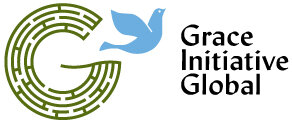Grace Initiative Global called for: Empowering the Marsh Arab Women (the oldest indigenous group in the world) to counter the impact of climate Change
(Parallel event held on March 23, 2022)
Decreased water and food availability, as well as extreme temperatures, are expected to negatively affect food, water, social and health security, impacting the most vulnerable – women and girls.
Given its unique hydrological limitations, Iraq is one of the most vulnerable countries to climate change impacts in the Middle East and North Africa (MENA) region, particularly due to its arid and downstream location.[1] Iraq is highly vulnerable to changes in precipitation levels. Moreover, the low water level in southern Iraq coupled with sea-level rise in the Persian Gulf has led to the intrusion of soil in Shatt El Arab and groundwater resources, increasing the salinity of water and causing serious damages to the surrounding lands. This situation creates extreme challenges to the people in Marsh Lands, especially the women.2
We examined our proposed project for establishing a community center for women to receive advanced warning and information on water flows, extreme heat. In addition to information, the Center would facilitate engagement and information regarding climate, extreme heat and water and pollution as well as water reduction. The programme focuses on women and girls’ leadership for engagement and empowerment.
[1] Salma Kadry. Gender and Water Dynamics in Iraq: Towards Inclusive and Sustainable Water Responses,
(Ebarlament – Cultures of Democracy, 2021), p. 5. Accessed at https://elbarlament.org/wpcontent/uploads/2021/06/article-II.pdf 2 UNDP. “Ahwari women, The beating heart of the Iraqi marshes” (March 8, 2021).
Accessed at https://www.iq.undp.org/content/iraq/en/home/stories/2021-stories/03/ahwari-women.html 8 Brian Fagan and Nadia Durrani. Climate Chaos Lessons on Survival from our Ancestors, (New York: Public Affairs, 2021), p. 55. 9 Kadry, p. 2.
